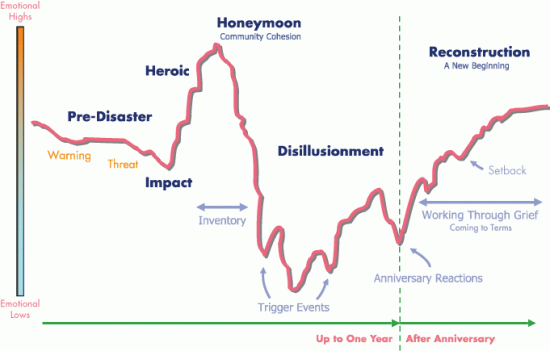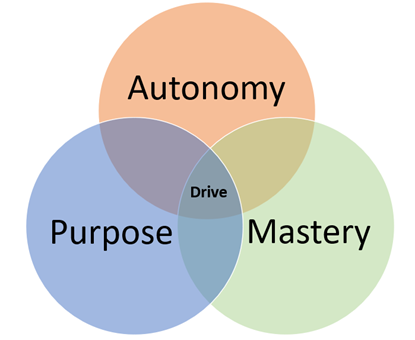Are you neuro nimble? Focus on Motivation
Lessons for leading in a pandemic
Neuro Nimble blog series 1 of 3: Focus on motivation
Greg Falvey is an Associate Director at 4i Solutions Ltd. He provides leadership programmes and executive coaching. He has a long career in the social housing sector and is currently Vice Chair for Southdown Housing Association providing housing, support and care services.
There are many articles to inform us about the effects of the pandemic within the work context, and how we might make adjustments, as we manage post lock-down. But it’s good to air these ideas, it’s good to learn from others and it’s good to talk. Sharing, talking and listening have powerful neurological benefits for leadership, for combating stress and in building motivation and resilience. And we’re going to need bucket loads of this in the coming months. So, ask yourself the question, are you, neuro nimble? What can we learn from the world of psychology to help us now?
As we navigate through the pandemic experience we move through the classic trauma and disaster curve.
The Psychology of Disaster

What’s important now is to realise that it is a reconstruction project. A reconstruction in how we lead our organisations, how we learn from the disaster, how we ensure our teams are motivated to embrace the future.
Whether on furlough, working from home, or attending work premises, our work experience has undergone a fundamental shift. Working remotely many people suffered technical intrusion, the idea that your employer can contact you at any time because you’re sitting at home in front of the screen with no-where else to go!
I have heard some commentators saying that it must be easier for introverts on furlough or working remotely. Introverts source their energy from within. But there is a danger that introverts fill their day with work, lose sight of work-life balance and lose sight of the collective objective. What is important is that we have ways and means of building our self-awareness so that we can best adapt and cope with our new ways of working. And that our leaders adapt to cope with our differences.
What of the extroverts? They need the social interaction and the constant babble, it’s where they get their energy from. But it gets more complicated than this. Psychologically, all have been prone to the magnifying effect the disaster has had on exposing ourselves to ourselves. Questioning our abilities, our purpose. In ‘normal times’ when all is well, we magnify, and tend to exaggerate our achievements, when troubled these cognitive distortions can magnify our problems. Staring at an image of ourselves all day whilst on virtual meetings doesn’t help. Whether at the work place, working from home, or on furlough many have faced a dislocation and a disassociation that works against our natural motivation levels.
Working from home on non-routine tasks can be very productive. A recent study from the CIPD found that staff working from home in the future is set to double in comparison to pre-pandemic levels. Almost two in five of employees will be working from home on a regular basis once the crisis is over. However, the negative effects of working from home on team cohesion and trust, social isolation, and burnout, may increase as a consequence.
A recent study of the effects of the pandemic, published in the British Medical Journal, reported that levels of stress, anxiety and depression are all much higher. ‘When considering the thresholds at which someone would qualify for high intensity psychological support in the NHS, the team observed that 31.6% reported moderate to severe depression and 26% moderate to severe anxiety.
The Surprising Truth About What Motivates Us
More so than ever, leaders will need to engage psychologically with their teams in the reconstruction phase of the disaster curve. Dan Pink has something useful to tell us here. He cites the work of psychologists Harry Harlow and Edward Deci. Their work showed that the carrot and stick type rewards systems can fail dramatically in engaging and motivating staff. Those findings were also supported by an MIT study conducted by behavioural and economics professors in 2017. Rather than the traditional extrinsic motivators like hierarchical instruction, pay and promotion, Dan Pink spoke of intrinsic motivators; intrinsic because they come from within. He spoke of the three pillars of intrinsic motivation as ‘autonomy’, ‘mastery’ and ‘purpose’.

This model gives a nod to Maslow’s hierarchy of needs. Most readers will have come across this. A hierarchy that starts with basic needs, physical and safety. Then psychological needs, belonging, friendship and self-esteem. At the pinnacle is ‘self actualisation’, achieving developed self-awareness, and reaching one’s full potential. The three pillar model is an exploration into what constitutes ‘self actualisation’. Where the circles overlap in the diagram above is where Dan Pink located ‘drive’.
Autonomy
Autonomy is about giving your staff and teams more control over their working practices. Time to do what they want and when they want. Autonomy motivates us to be more creative. We each have a strategy within us of how best to perform in our work and ideas about how to overcome challenges. The freedom of autonomy is a huge motivator. The opportunity to try new ideas, make mistakes and to learn from those mistakes. Google famously set aside time in the working diary to allow staff to work on their own projects with great results. The Australian company Atlassian gives its people time outside of the day job to work on whatever they like resulting in many useful innovations. It can be hard for managers to let go of control and they will need reassurance.
Mastery
Mastery is about self-improvement, the want to build new skills and develop competencies. Good training and opportunities for growth can dispel limiting beliefs and motivate your staff to see their development as continuous. Self-development becomes a goal in-itself. The bedrock of self-development is self-awareness, and both can be enhanced through well-defined mentoring and coaching programmes.
Positive psychologists talk about the notion of Psychological Flow. A state of being absorbed and focused in the mastery of our activity. It leads to creativity and heightened performance. Optimum flow is achieved by having two key elements. The first is stretch targets, that your staff perceive to be set at an appropriate level of stretch. How often do we set targets for our teams without consulting with them? The second is clear and unambiguous short-term goals where regular feedback is given on progress so that your staff can exercise autonomy and make their own corrections.
Purpose
Purpose is about your staff being engaged in the big picture. Those that know how their contribution adds to the organisation’s purpose are more motivated. Look at Wikipedia, introduced in 2001, a non-commercialised enterprise that has thousands of volunteer contributors motivated by its purpose. The opposite is also true. If your staff don’t know your organisation’s intentions post pandemic, if they haven’t been involved in that discussion, they will feel disconnected and demotivated.
The values and ethics of your organisation are central to this pillar of motivation. Could you sum up the values and ethics of your organisation is three sentences? Could your staff? We need to capture the natural benevolence of the millennial generation by showing how they contribute to values, society and the challenge of climate change. Our social value and corporate social responsibility projects are key. As Simon Sinek has said, people are motivated by the ‘Why’ of an organisation. What motivates us is not what we do but ‘why’ we do it. Your staff need to know the difference their contribution is making.
There are many commentators reflecting on how those on furlough have felt isolated and their loyalty waning. Those working from home have felt burdened and over worked, those still on site have felt lumbered with keeping things going and feel hard done by. This has created friction between departments. All will need to hear from their leadership that they understand the difficulties people have endured. It’s hard to be motivated if you feel marginalised.
One large association in our sector has already announced that the majority of their staff will work from home in the future. How will they ensure intrinsic motivation is maintained in that context? One large contractor in our sector has told me they intend to operate a hybrid system and will consult individuals and teams to ensure the new model is a best fit for them. That’s sensible. There are many good practices from the pandemic, some have said the daily check-in calls from their boss made them feel more included than they have ever felt. Working from home has added in some ways to autonomy. We’ve learnt about the efficiency of video calling. New practices will emerge and the best of those will be built upon listening to individuals and teams about what works best for them and their intrinsic motivators.
Eight take aways
- As a senior management team, share your thinking behind emerging strategies for keeping the organisation on track post pandemic
- Demonstrate your understanding and appreciation for your staff’s individual journeys
- Consult staff on their preferred models for new ways of working
- Allow set aside time for individuals to work with autonomy
- Allow teams to create their own projects that they see have value. Projects that are challenging, have stretch, promote collaboration and encourage psychological flow
- Reenergise training programmes that aren’t just skills based but focus on personal development
- Reinvigorate social value projects and staff volunteering days
- As a senior management team, ask yourselves if the pillars for motivation are understood and applied
The people development team at 4i Solutions collaborate with clients to provide leadership development, executive coaching and outdoor experiential learning.







